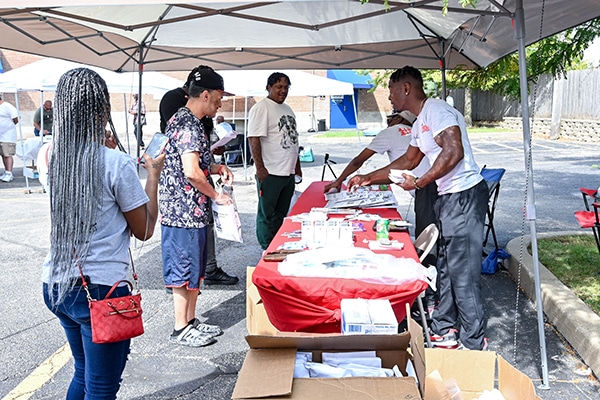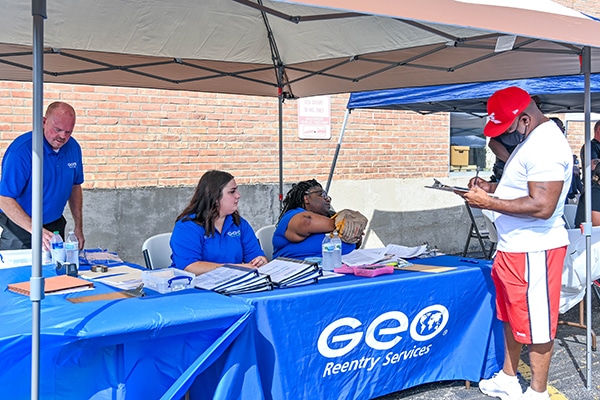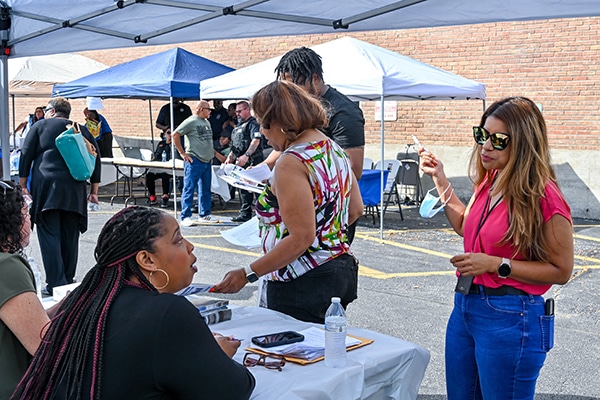
GEO Reentry’s West Fulton Reentry Service Center, which delivers treatment and training for individuals on parole and returning to community life, hosted a Community Job and Resource Fair this fall at the reentry center, located at 2650 West Fulton, Suite 5. While designed for justice-involved individuals seeking job and community services, the Resource Fair was also a family-friendly event, with fun and free activities, food and giveaways.
Nonprofits and other community groups, which provide services such as housing, employment, educational, health services and more, were on hand to share information with attendees. Some of the organizations setting up tables with information included: Loretto Hospital, Safer Foundation, St. Leonard’s Ministries, Breakthrough Ministries, Westside Health Authority, Habilitative Services, Community Christian Health Center, Westside Minister Coalition, Option Health Care, the Department of Public Health as well as the Department of Human Services.


“There is so much available in our community for individuals returning to the community and sharing this information in one place on one day can be very beneficial,” said Sonya Davis, program manager at the West Fulton RSC. “We also wanted to focus on removing the barriers and fear of approaching community organizations and agencies that the participants may harbor.”
The Community Job and Resource Fair and open house was for program participants who attend the non-residential reentry program as well as former probationers and parolees. Attendees accessed many free services, including employment opportunities and mental health services.
GEO Reentry’s West Fulton Reentry Service Center provides day reporting and cognitive behavioral treatment for parolees and is funded by the Illinois Department of Corrections. Classes also address substance abuse, anger management and employment and educational issues to target recidivism reduction among participants.

The Department of Corrections utilizes seven day reporting centers (also called reentry service centers) that serve as resource centers and reentry hubs for persons under parole supervision in high-impact regions throughout the state, who are vulnerable to drugs, crime, gangs, violence, unemployment, poverty and family dissolution. The centers are open 365 days a year and provide counseling, programs and services to support the parolee’s transition into society.
